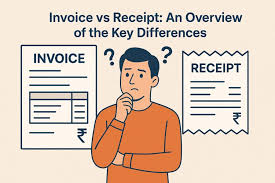The gig economy—a labor market structured around temporary, flexible jobs instead of traditional full-time roles—is transforming the way people work. From ride-hailing drivers to freelance designers, more South Africans are turning to gig-based work for independence, income, and flexibility. Yet, this shift raises critical challenges around security, regulation, and financial management.
Let’s explore what the gig economy means—especially in South Africa—and how tools like ProInvoice help gig workers and micro-businesses manage the realities with confidence.
1. What Exactly Is the Gig Economy?
The gig economy refers to work based on short-term contracts or freelance tasks, often facilitated through digital platforms—think Uber, TaskRabbit, or freelance marketplaces like Upwork. Workers are paid per “gig” rather than receiving a regular salary.
In South Africa, this model has become increasingly relevant as traditional employment opportunities remain limited and demand grows for more flexible income alternatives.
2. South African Gig Work: Opportunities & Scope
The gig economy enables unmatched flexibility and autonomy. Many South Africans are converting their skills into earnings—be it through ride-hailing, delivery services, creative freelancing, or digital work.
Qualitative research shows that gig work is helping reduce unemployment and improve economic inclusion—especially in areas with limited traditional job prospects.
3. The Downside: Precarity & Lack of Protection
However, gig work is not without severe drawbacks:
- No formal worker protections—gig workers typically lack access to sick leave, pensions, or compensation that traditional employees enjoy.
- Legal ambiguity—current labor laws don’t clearly classify gig workers, creating uncertainty around rights and benefits.
- Safety risks—such as violence or harm during deliveries, especially in underserved communities.
- Digital exclusion—many lack access to affordable connectivity and digital skills, particularly in rural areas.
4. Global & Local Context: What’s at Stake
Across the globe, the gig economy has expanded massively—thanks in part to the pandemic and digital transformation. By 2023, millions were engaged in gig work worldwide.
Still, the lack of minimum labor standards and benefits for gig workers remains a critical concern—both globally and in South Africa.
In South Africa specifically, the country’s share of the global online gig workforce remains small (around 0.17%), lagging behind Kenya and Nigeria, despite high youth unemployment.
5. Bridging the Gap: What’s Needed
To unlock the gig economy’s full potential in South Africa, several interventions are crucial:
- Hybrid worker classification—a legal middle-ground between independent contractor and employee.
- Portable benefits—enabling gig workers to carry retirement or medical benefits across platforms.
- Upskilling and digital literacy programs—to enhance freelancers’ technical and entrepreneurial capabilities.
- Stronger labor regulation—clear protections against exploitation, fair pay, and secure contracts.
- Worker representation—forming collective groups to negotiate against platform power.
6. How Gig Work Fits into South Africa’s Economy
Gig work is transforming both individuals and businesses:
- For workers: It provides immediate income opportunities, flexible schedules, and the chance to develop entrepreneurial skills.
- For SMEs: It offers cost-effective access to specialized skills without the burden of full-time staffing.
7. Staying Financially Sane in the Gig Economy
For gig workers and small operators, financial stability is a real challenge—irregular payments, delayed client funds, and lack of traditional safety nets require smart financial tools.
This is where ProInvoice shines:
- Issue professional invoices quickly
- Track payments and send automated reminders
- Keep records for tax and compliance
- Analyze your income patterns for better planning
By using ProInvoice, South African gig workers and micro businesses can improve payment speed, manage cash flow, and appear more credible to clients.
8. Mitigating Gig Economy Risks with ProInvoice
Gig work comes with unpredictability—but better management makes a difference:
- Reduce income volatility by encouraging faster payments with branded, easy-to-pay invoices.
- Maintain financial organization for tax filing, audits, or future bids.
- Focus on growing your client base—not chasing payments.
Final Thoughts
The gig economy offers flexibility, access, and economic potential—but only if risks are managed, and protections are implemented. South Africa stands at a crossroads: with the right policies, infrastructure, and financial tools, gig work could drive meaningful opportunity and inclusion.
And for freelancers and gig-based micro businesses, tools like ProInvoice provide the stability and professionalism needed to thrive in this evolving landscape.
Ready to invoice smarter and build your gig economy success?
Sign up with ProInvoice free today!













